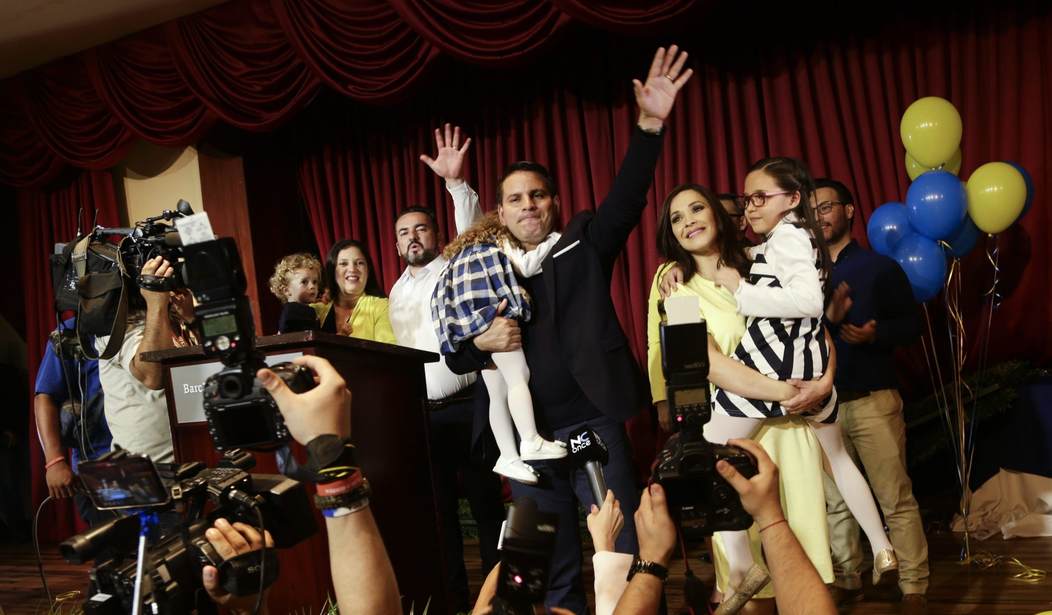On Easter Sunday, an evangelical Protestant who opposes same-sex marriage faced off against a Roman Catholic gay marriage supporter in predominantly Roman Catholic Costa Rica. While the Protestant ultimately lost, the strength of his challenge should still prove a wake-up call for the LGBT movement.
Carlos Alvarado Quesada, a novelist and former Cabinet minister running for the ruling Citizen Action Party, defeated the upstart conservative evangelical Protestant Fabricio Alvarado Muñoz of the National Restoration Party. With 95 percent of ballots counted, Alvarado had 60.8 percent to Alvarado Muñoz’s 39.2 percent, the Associated Press (AP) reported.
This presidential race proved particularly tumultuous. The candidates who led in the polls last year nearly all fell far behind after a corruption scandal involving political figures from nearly every major party.
Alvarado Muñoz, a 43-year-old religious singer and former journalist, shot to the top of the polls in late January, following a January 9 ruling from the Inter-American Court of Human Rights (IACHR) requiring Costa Rica to allow same-sex couples to marry. The court ruled that all countries that have signed the American Convention on Human Rights must approve same-sex marriage.
On February 4, Alvarado Muñoz won with a mere 25 percent of the vote, leading to a runoff between him and Alvarado Quesada, who took 21.6 percent of the vote in February.
According to a Pew Research Center survey in 2014, 61 percent of Costa Ricans opposed legal same-sex marriage, while only 29 percent supported it. Only 13.8 percent of Costa Ricans identified themselves as evangelical Protestants in 2007, while 71 percent said they were Roman Catholic (45 percent practicing, 26 percent non-practicing).
According to the Catechism of the Roman Catholic Church, homosexuality is a perversion and marriage is between one man and one woman. Evangelical Christians see marriage as a symbol of the union between Jesus Christ and His church, which will culminate in a wedding feast at the end of time. They also cite Romans 1, a passage suggesting that homosexual passion is a curse and result of sin. For these reasons, most Catholics and evangelical Protestants both oppose same-sex marriage.
Even so, evangelical Protestant Alvarado Muñoz shot to the top of the polls in mid-January, after firmly denouncing the IACHR ruling as a “sovereign violation” of Costa Rica’s self-governance. In a February debate, he declared, “We have to stand up to those who want to trample on the family.”
Alvarado Quesada, the ruling party’s candidate, was the only presidential candidate to support same-sex marriage.
The struggle over gay marriage in Costa Rica dates back to May 2006, when the nation’s Supreme Court ruled against the practice. The 5-2 decision ruled that the country’s Constitution did not require a legal recognition of same-sex marriage. The first bill to legalize gay marriage popped up in March 2015, and the Citizens’ Action Party announced its support for same-sex marriage in December 2016.
While Alvarado Quesada won the election, Alvarado Muñoz’s surprising political boost should still indicate Costa Ricans’ general discomfort with a foreign court attempting to dictate laws for a sovereign country where most people do not agree with same-sex marriage.
The fact that an evangelical Protestant from a marginal party emerged as a primary competitor for the presidency in a predominantly Roman Catholic country should still undermine the LGBT inevitability narrative. The same-sex marriage candidate did win, but he also represented the ruling party (the party whose previous president who won 68 percent in the 2014 election).
Costa Rica may not immediately follow Bermuda, the first country to repeal same-sex marriage, but this election is not the LGBT victory some might suggest, either. Alvarado Muñoz did much better than ever would have been expected, and it seems his opposition to same-sex marriage catapulted him just shy of the presidency.









Join the conversation as a VIP Member